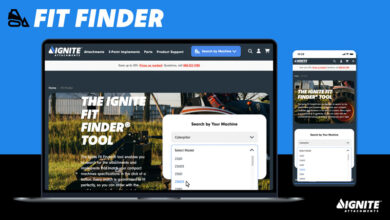15 Mistakes That Are Hurting Your Equipment Sales
By Don Cooper
Most of us are our own worst enemy. We do things (or fail to do things) that sabotage our sales efforts. Take a look at this list and give yourself an honest appraisal. How many of these common mistakes have you made lately?
- Not greeting prospects properly
Too many salespeople still greet prospects who walk into the dealership by asking some variation of “Can I help you?” Of course, the answer is almost always “No.” (Although that’s not as bad as the salesperson I encountered once while mystery shopping who walked right past me and, without breaking stride, said, “You didn’t need any help, did you?”)
Always welcome visitors to your dealership with a handshake and a smile. Introduce yourself and learn their names. And ask an open-ended question like “What brings you in today?”
- Pre-judging prospects
Just because a person is wearing ratty jeans and an old T-shirt doesn’t mean they can’t afford a new top-of-the-line mower or UTV. Or that the company they own doesn’t have the budget for a half dozen new mowers. I’ve heard plenty of stories about unkempt, shabbily dressed people who were completely ignored by the entire sales staff. And when a salesperson finally went over, they discovered the person was fabulously wealthy.
Researchers have learned that we all make subconscious snap judgments about people based on their age, sex, race, hair, clothing, voice and other factors. However, if you don’t consciously overcome those snap judgments, they will lead you astray and cost you precious sales.
Assume every person who enters your dealership is a qualified buyer. Keep in mind that your customer base works outside for a living. Remind yourself that rich people don’t have to dress up. They don’t need to impress you with their appearance – you need to impress them with your attitude.
- Not asking enough questions
Whenever I interview salespeople, they always assure me that they ask their prospects a lot of questions. And then when I observe them in action, they invariably ask two or three questions at most before launching into a spiel about whichever item their prospect happens to be standing next to.
When a salesperson pushes a piece of equipment that isn’t a good fit, prospects get annoyed, because their time is being wasted. Prospects would much rather you spend a few extra minutes asking about their wants and needs, so you spend less time pitching the wrong thing.
When I train sales teams, I arm them with 20 to 49 questions, such as:
- What’s the biggest challenge you’re having with your yard right now?
- What’s most important to you in a (chain saw, mower, trimmer, generator, etc.)?
- How much use will it get?
- Are you working within a budget?
- What matters most to you in a dealership?
If you ask enough of the right questions, your prospect will tell you everything you need to know to make the sale. So, what questions do you need to ask to get the information you need?
- Ignoring women
This is one of the biggest complaints of female buyers. Ironically enough, even female salespeople frequently commit this mistake.
Today, women are more likely than ever to own their own homes by themselves (not to mention owning their own businesses). So ,when a woman walks into your store, she’s a buyer. Even if a man is with her, there’s a decent chance she’s the one making the decision. And even when the man is clearly the one shopping, keep in mind that studies show the woman controls the checkbook 80 percent of the time. Her opinions, concerns and desires matter.
Always treat women with the same attention, courtesy and respect you give to men. And whenever you’re talking with a couple, be sure to ask questions of both of them, make eye contact equally with them, and take them both seriously.
- Not knowing the competition well enough
How do the brands you carry stack up against the competition? What are their relative strengths and weaknesses? What, specifically, makes your chain saws, hedge trimmers, and leaf blowers better?
And how does your dealership compare to your competitors? If you don’t know your competition, you can’t make a good case for why your prospect should buy from you rather than from someone else.
Invest time studying competitive manufacturers. Know their equipment as well as you know your own. And study the other dealerships in your area – browse their websites, examine their social media accounts, and mystery shop them if you can.
- Confusing features with benefits
This is a common mistake not merely among salespeople, but among marketing professionals as well. Just glance through any manufacturer’s brochure, and you’ll see page after page extolling the features of their equipment – blade length, battery life, horsepower, noise level, etc. As a result, when most salespeople talk with a prospect, they simply list the features of the item they’re showing.
The problem is that buyers don’t care about features, they care about benefits! Which means if all you’re doing is talking about an item’s features, you’re going to lose the sale to someone who knows how to translate them into benefits.
Ask yourself about each feature, “How does this benefit the user? Why would a buyer care about this? What does it enable the owner to do or not do?”
- Failing to listen
Too many salespeople are so busy spewing all the features they’ve memorized, they don’t make any effort to actually listen to their prospects. When prospects aren’t listened to, they feel that the salesperson doesn’t really care about them.
By contrast, when prospects are listened to, they feel respected, valued and important. The more you listen, the more rapport and trust you build. So talk less and listen more (which is why it’s important to ask a lot of questions).
- Using clichés
Because everybody uses them with such frequency, words such as “quality,” “performance” and “service” no longer have meaning by themselves. Ditto for phrases such as “customer satisfaction” and “best value for the money.” If you’re only speaking in clichés, you’re not really communicating anything at all, and your equipment will be perceived as no different than anyone else’s equipment.
Don’t rely on clichés. Provide an example of your manufacturer’s quality. Tell a story about your service department. Prove your dealership’s uniqueness with some kind of verifiable fact.
- Talking down to prospects
A triumph of ego over good sense. Prospects don’t like salespeople who come across as arrogant. Prospects also don’t like to feel stupid, and will avoid buying from salespeople who make them feel that way. My aunt Iris knows more about outdoor power equipment than 98 percent of men – do not treat her condescendingly.
Curb your ego. Respect your prospect’s intelligence. Make them feel smart.
- Fumbling objections
Often, when salespeople encounter an objection, they freak out, believing they’ve just lost the sale. In their panic, they fail to address the objection effectively. Or they dismiss the objection, hoping the prospect will think it’s insignificant. Either way, that often leads to losing the sale.
Figure out good answers to the most common objections you get and practice them so you’ll know what to say when you hear them. That will dramatically reduce your anxiety level when your prospect raises the objection.
- Cutting price
Too many salespeople cut the price of their equipment needlessly. They believe price is the most important issue, so the only way to make the sale is to beat everybody else’s price. If you don’t know how to convey the unique value of your mower, generator or chain saw – as well as the value of your dealership – then price is the only issue you have going for you. And that means you’ll actually lose the sale, more often than not.
Understand and be able to communicate the full value of the equipment you sell, as well as your dealership. Defend your price, don’t cut it.
- Not attempting to close
Every manager at every dealership I have ever talked with has said the same thing: The number-one challenge their salespeople have is asking for the sale. Most salespeople are so uncomfortable with closing, they hope their prospect will simply ask to buy the item – then they get frustrated and dejected when the prospect walks out of the dealership without doing so.
Recognize that closing is your responsibility. You must always ask for the sale. If you’re not good at it, there are plenty of seminars, books, and audio and video programs devoted to the subject.
- Trying to close too soon
The few salespeople who do routinely ask for the sale frequently do it too soon. Many salespeople are taught to “Always Be Closing.” But trying to close before the prospect is ready to buy leads to rejection. And once they’ve rejected you, you may not get another chance to close.
Watch and listen carefully for buying signals from your prospect. When you get signals that indicate they’re ready to buy, that’s the time to close the deal.
- Pressuring prospects
Nobody likes being pressured, but an awful lot of salespeople do it anyway. The fear of losing the sale is so great, they feel compelled to apply pressure to their prospects so they won’t “get away.” The more pressure you apply, however, the more likely your prospect is to run.
Relax, be confident, and be professional. Take turns with your prospect leading the conversation. Get to know them on a personal level. Build rapport. Make them laugh. Help them feel comfortable.
- Forgetting to follow up
Often, prospects don’t buy on their first visit to a dealership, which means follow-up is crucial for ensuring the prospect returns. Yet many salespeople neglect to follow up, forgoing an opportunity to build a stronger relationship with prospects.
Ask everyone you talk with for permission to follow up with them and enter them into your CRM. Then follow up regularly. And don’t just ask if they’re ready to come in again – be of value. Send articles on landscaping, equipment care, business strategy, and any personal interests your prospect mentioned to you.
What to do
If you’re guilty of making one or more of these mistakes, don’t beat yourself up too much. After all, they’re extremely common, so you have a lot of company. But do make a concerted effort to correct them, because they’re interfering with your sales success. Read a book, go to a training seminar, or get some individual coaching.
If you’re a dealership owner or manager, and you’re concerned your people are making these mistakes, invest in some modern, practical sales training for them.
When you do, you’ll see your sales increase. Make no mistake about it.
 Don Cooper – The Sales Heretic – is an internationally acclaimed sales expert who helps salespeople and business owners charge more and discount less. He delivers custom seminars and keynote speeches for corporations, associations, and other business organizations. You can reach him at 303-832-4248 or Don@DonCooper.com. Find loads of sales tips on The Sales Heretic blog at DonCooper.com and on Twitter at @DonCooper.
Don Cooper – The Sales Heretic – is an internationally acclaimed sales expert who helps salespeople and business owners charge more and discount less. He delivers custom seminars and keynote speeches for corporations, associations, and other business organizations. You can reach him at 303-832-4248 or Don@DonCooper.com. Find loads of sales tips on The Sales Heretic blog at DonCooper.com and on Twitter at @DonCooper.




